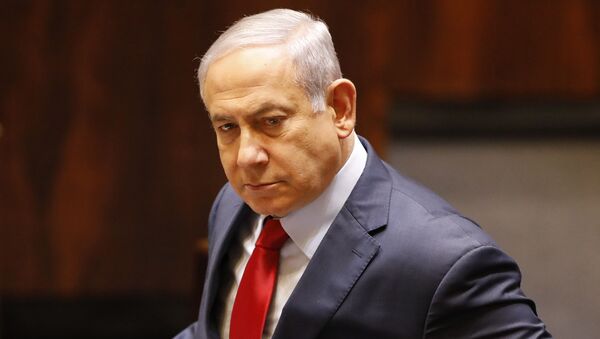Professor Abraham Diskin, an Israeli political scientist at the Hebrew University of Jerusalem and a professor at the Interdisciplinary Center in Herzliya says nobody can predict the outcome of this election, but Netanyahu has 50/50 chance to win.
What are your predictions regarding the outcome of the elections on 17th of September? How high are the chances of a Likud victory?
Abraham Diskin: Today it's a very very close race between the two large parties and between the two blocks, the pro-Netanyahu group of parties and anti-Netanyahu group of parties. It's very close and the result depends on a number of factors.
First of all, of course, the votes floating within each camp. More important are the votes floating between the two camps which, by the way is not very promising for Netanyahu. More important are the two other factors - one is a threshold, there is a 3.25% threshold and two parties at least, one on the left and one on the right are at risk of not meeting that threshold of 3.25% of the valid votes. And the last issue which is not less important is the turnout in different neighbourhoods. For instance, in Arab areas I would guess that the turnout will be lower than in April, though so far the general turnout is higher. The Arab voters, most of them, vote for the anti-Netanyahu Joint List which might help Netanyahu and the two other parties which are very aligned.
So, it's very difficult to guess what will happen. Netanyahu does have a chance, but it's really a fifty-fifty case.
How would you asses the chances of Netanyahu’s main rivals in this election race? Can they change the current balance of power?
Abraham Diskin: Centrist and left-wing parties face more real problems in forming a coalition than Netanyahu. Because the pro-Netanyahu camp does have the majority of seats, 61 out of 120 or more. On the other hand, if the other block can have a majority, there is a problem, because there are parties which will get something around 10, 12, maybe 13 seats, can not be taken into consideration of a coalition. In that case the main leader of the anti-Netanyahu block Benny Gantz will have to look for defectors from the other block and maybe he will find them in Likud.
Maybe he will join forces with Likud in the National Unity government. Although there is a pre-condition: that party demands the resignation of Netanyahu. They are ready to form a national unity government with Likud, but they are not ready to have Netanyahu in that new coalition. So, as far as coalition formation is concerned, the position of Netanyahu is better than the position of Gantz. That all depends on who reaches the threshold.
What could be the main obstacles for Netanyahu in forming a coalition after the elections?
Abraham Diskin: We are talking about, generally speaking, three potential partners. Two of them are religious parties and I think Netanyahu will not have a major problem of having a coalition with them. Of course, there will be demands for positions, for ministries, but that's not going to be very difficult. The third party is semi-religious I would say and they are far more to the right on security issues than Netanyahu. And they have a very serious demand - by the way they had it after the 2015 elections. Until the very last minute they were not ready to participate. And they gave Netanyahu a demand, they wanted a very important Ministry, the Ministry of Justice, and Netanyahu had to give it up. They got that Ministry.
Is there a possibility of Israel going yet again through the election process if the coalition would not be formed? If so, what will the politics of Israel look like afterwards and how can this chaos be stabilised?
First of all, we might have a stalemate, as we had before, in April. But I believe, that even if there is a stalemate, some coalition will be formed. and what is more I believe there will be severe pressure from the President, media and also from politicians who will be elected, to form a coalition. I don't think that there is a chance that we'll have a third election because of a stalemate. We'll find the way to overcome this, we'll form some kind of a coalition.

